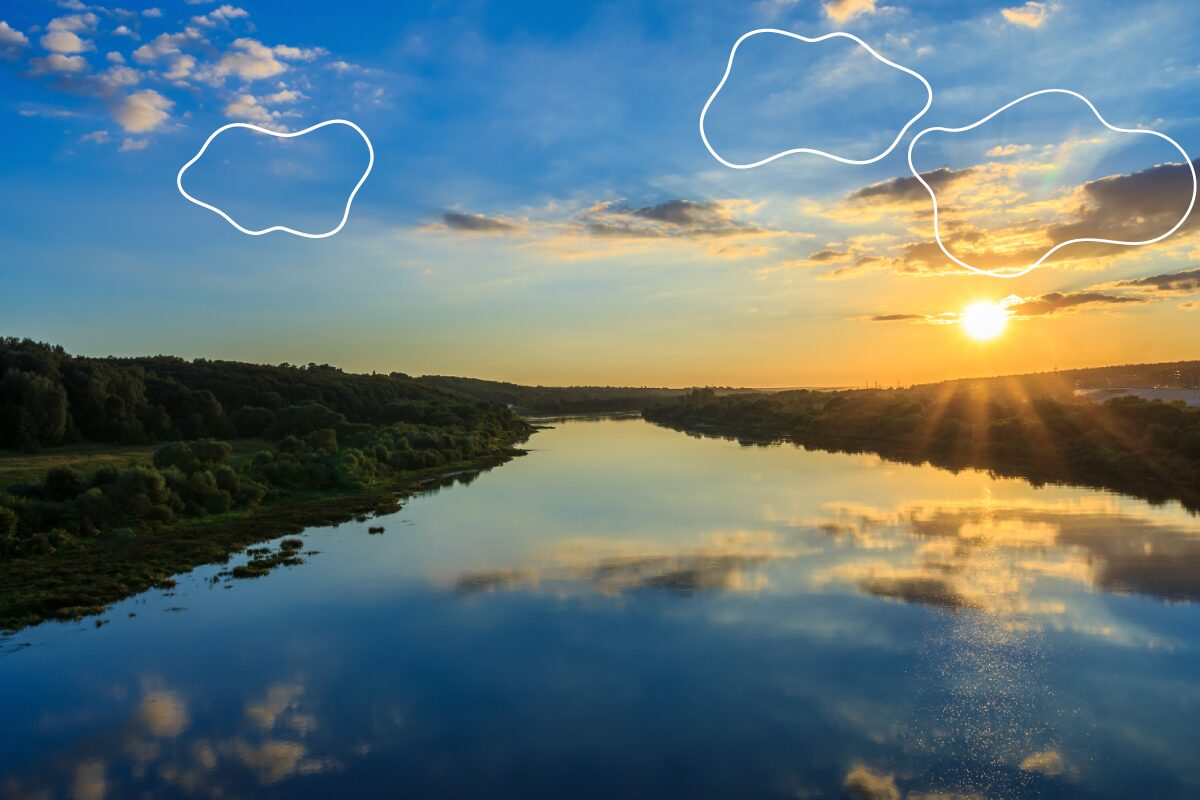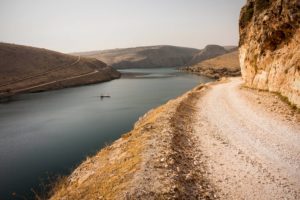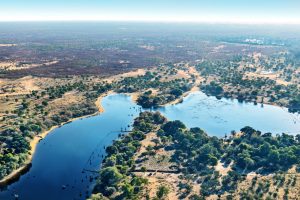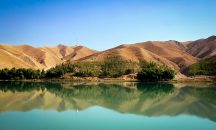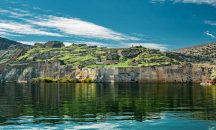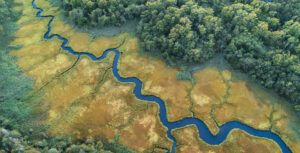Water: A platform for peace in the tides of war
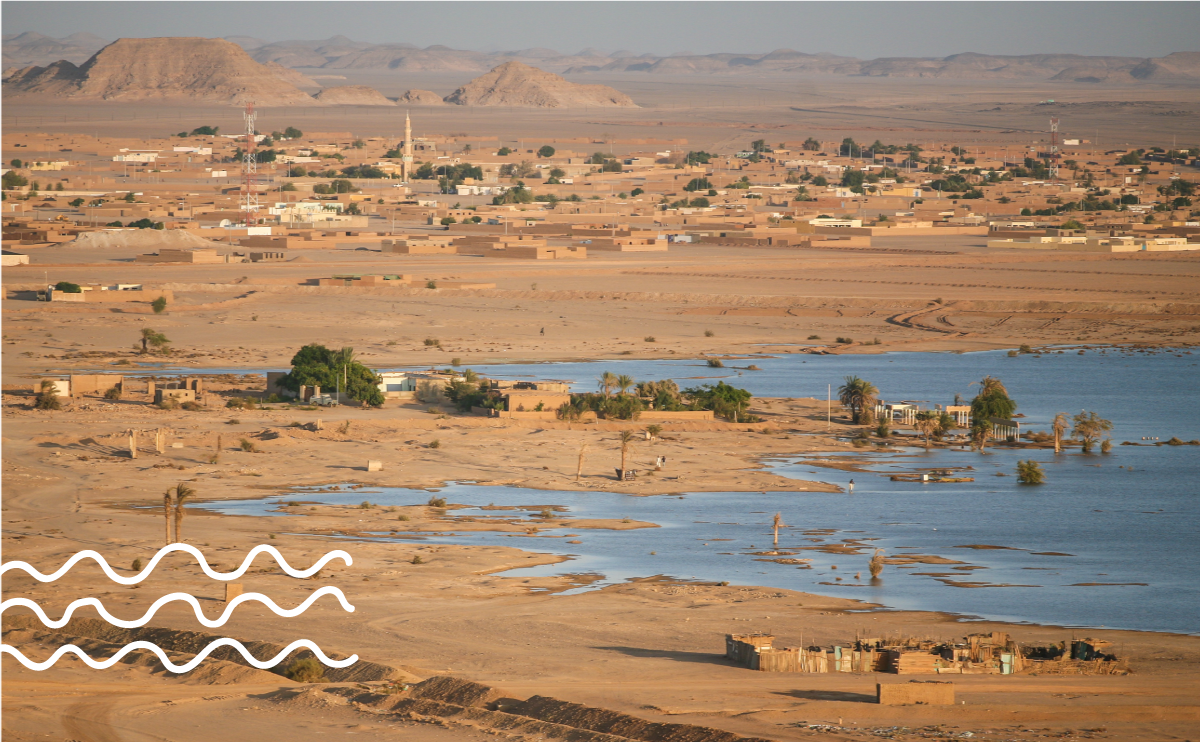
Shared water and conflicts
Water resources often cross boundaries of more than one country. More than three billion people depend on shared water that crosses borders. When these shared waters happen to be in conflict-laden areas, this can create a tense situation in accessing clean water for neighbouring countries, and can lead to an increasingly hostile environment, triggering violence and exacerbating conflict.
At present, in regions experiencing armed conflict, such as in Ukraine, Gaza, and Sudan, water is being actively utilized as part of a strategy for oppression. Since 2022, in Ukraine, Russia has attacked dams, wells, and pipelines, contaminating water, and withholding water access for more than 20 days at a time. In Gaza, Israeli forces responded to attacks by denying and restricting access to freshwater, water-treatment plants, and other locally produced water systems, preventing populations from accessing basic amounts of safe drinking water according to World Health Organization (WHO) guidelines. Sea water has also been used to flood Hamas tunnels, which will result in the salinization of soils, making the entire area unfit for farming for decades to come. In Sudan, several water treatment plants and pumping stations have been destroyed, resulting in frequent water outages, and leaving people without access to basic sanitation services.
As more data is compiled and analyzed, it seems that there is an increase in water-related conflicts; when water serves as a trigger, weapon, or is a casualty of war. The increase in this strategic use of water during attacks is troubling, as more conflicts are sure to continue in the coming years, while water resources continue to dwindle.
As the impacts of climate change intensify, it is even more important that countries cooperate to build and maintain peace as they prepare for the inevitable uncertainties surrounding water and resources.
Peaceful water cooperation
How then, can water be used as a tool for peace and support conflict prevention and cooperation?
Water can be a tool to bridge the disrupted gaps between countries, actors, and parties. Through preventive diplomacy, crisis management, conflict resolution, and peace building processes, water can be an entry point for cooperative dialogues.
Strengthen cooperation
- Conflicts over freshwater resources are often embedded in or have grown from historical grievances. This often reflects much broader geopolitical issues between countries than water usage alone. Strengthening networks and opening lines of formal and informal communication amongst countries related to water resources remains a key challenge around the world.
Increase cooperative treaties
- More than 30 years ago, water cooperation in Jordan and Israel was essential to de-escalating hostilities. The agreement led to a water-sharing treaty that has been in place since then.
- In the 20th century alone, more than 149 water-related treaties have been implemented.
However, there is still a long way to go, as water cooperation agreements continue to be underutilized; for example, of 310, only one third of transboundary river basins have formalized agreements. And this number only lessens when you broaden the water scope to include aquifers, where limited freshwater is most readily stored.
Improve preparedness
- The International Centre for Water Cooperation (ICWC) recently concluded a water cooperation assessment of 32 basins in Africa, outlining next steps for better cooperation in their Water Cooperation Global Outlook Initiative. These types of assessments must continue, as they include insights on country preparedness and policy opportunities for water cooperation solutions.
- Further, the World Resources Institute has recently developed an artificial intelligence algorithm called the “Global Early Warning Tool” that analyses data while considering many factors before flagging potential water related issues. This analysis can help prepare countries before an armed conflict arises, and put into place appropriate, sustainable, climate-prepared solutions.
Implement international protection laws
- In 2016, the Geneva Water Hub created a guiding list of principles that could be used as a starting point for protecting water sources during conflicts and elucidates how to apply international laws during these situations. The principles focus on water sources that are weaponized during conflicts and discuss how to safeguard them in post-conflict scenarios. Following the workshop in 2016, a policy briefing from the Geneva Water Hub was prepared, which recommended safeguarding freshwater and water-related infrastructure to protect water from conflicts.
- Various petitions and initiatives continue to sprout, asking the UN to implement international protection laws for water sources.
- In 2021, the Council of the European Union (EU) made specific mention of the mismanagement of water resources as part of their “10 priority crime threats for EU countries”, under environmental crime. In 2023, the EU Parliament and Council outlined specifics regarding environmental crimes that included water, including “illegal depletion of water resources”, and proposed sanctions to better protect the environment.
- In 2021, the EU’s Foreign Affairs Council approved water diplomacy conclusions that reaffirmed their commitment to SDG6, and increased water’s emphasis in their external action. This also demonstrated the importance of strong multilateral and bilateral cooperation, underlining the EU’s intention to enhance water as a tool for peace, security, and stability.
Ensure inclusive decision making processes
- Inclusion of gendered perspectives into decision making processes surrounding water leads to longer lasting cooperation. Including women and local perspectives to crisis responses, particularly water related, could yield more sustainable solutions.
- Recommendations from the Swedish Institute for International Affairs for more inclusive crisis responses include promoting women’s participation to prevent a resurgence of conflict in these areas. Water governance that includes gendered perspectives must continue to be implemented for the best chance of maintaining peace and preventing armed conflicts from occurring.
These are all steps in the right direction for proper protection of water resources. However, many more international, regional, and domestic laws must continue to follow these trends to make serious headway in peaceful water resource recognition.
SIWI’s approach and contributions to peacebuilding
Raising awareness
- To increase cooperation over water resources, SIWI is a leader in raising awareness of the complexities of the issue and the inefficiency of maintaining the current siloed approach to water governance. Through our networks and events, SIWI advocates for interlinked, multi-sectoral, solutions to water protection.
- SIWI focuses on facilitating dialogue amongst actors and encourages information sharing for more fruitful cooperation. Up to 60% of global freshwaters flows are not covered by formal agreements or treaties. Many agreements that are in place are not being implemented due to changing climate and water conditions and growing uncertainty. SIWI responds to these challenges by creating a safe dialogue space where a broad range of actors sharing a water resource can advance knowledge on shared climate-related risks and discuss solutions.
- The ICWC and its work is backed by SIWI, focusing on capacity building, and advancing knowledge on water cooperation.
Improving water diplomacy and governance
- A key water diplomacy expert, SIWI contributes knowledge to peaceful, stable governance, connecting water to social, environmental, economic, and political factors, and helping to establish and enhance technical and political cooperation over water.
- SIWI leads the “Shared Water Partnership” programme. This programme facilitates transboundary water cooperation within fragile and conflict-affected regions of the globe.
Including women in decision making
- SIWI also initiated the Women in Water Diplomacy Network in the Nile, and the Women in Water Management Network in Central Asia and Afghanistan. The networks facilitate women’s meaningful participation in water decisions, crisis mediation, negotiations, and preventative diplomacy.
